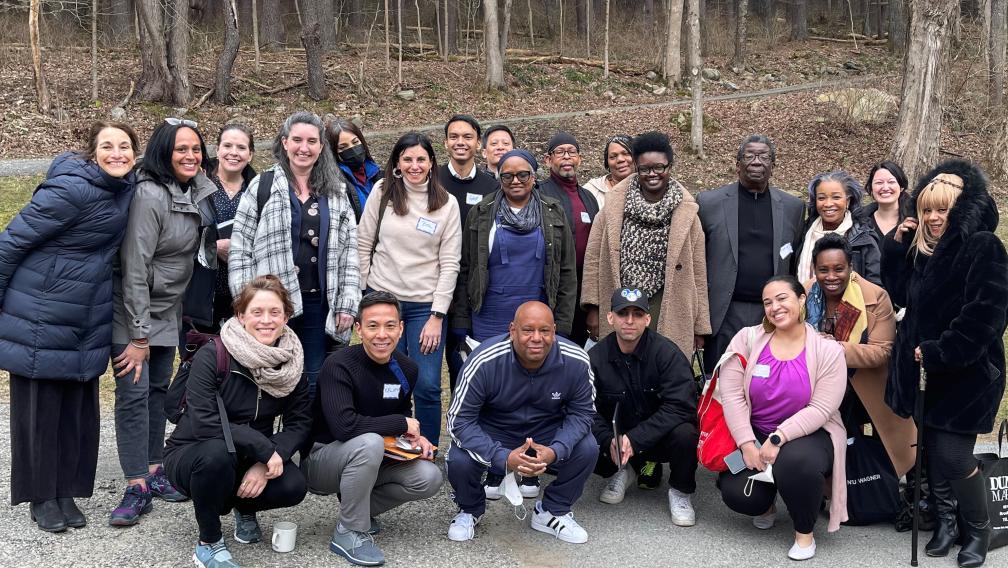“The way of a fool is right in his own eyes, but a wise man listens to advice.” So says Proverbs 12:15 and a good rule for approaching any relationship, including—or perhaps especially—that between a funder and grantees.
While Trinity Church has engaged in charitable giving for over 300 years, our shift to strategic grantmaking is relatively new. Since this shift in 2019, Trinity Church Wall Street Philanthropies has given more than $100M to 300+ organizations in New York City and globally. We’ve worked hard to put good systems in place and to develop strong, trust-centered relationships with grant partners. But we also know that we can improve—and that we need direct, honest feedback to do so—which is why we reached out to the Center for Effective Philanthropy (CEP).
CEP is a nonprofit that gathers anonymous grantee feedback via their Grantee Perception Report to help funders be more effective. This feedback is both qualitative and quantitative, and it extends across the entire grantmaking experience; everything from the clarity of our application guidance to our field impact is assessed by grant partners. Then, our results are compared with peer funders, helping us understand where we see success and where we need to make changes.
Trinity shows up!
Trinity Grantee respondent
How Trinity Fared
We are so grateful to our partners for their thoughtful, nuanced feedback. This is what they shared:
- Trinity engages deeply with partner organizations and communities. Grantee ratings placed Trinity in the top 10 percent of funders in CEP’s comparative dataset for the extent to which our grantmaking priorities reflect a deep understanding of the needs of the people and communities that grantees serve. Trinity also scored well on our awareness of the challenges that our grant partners are facing. As one grantee wrote, “Trinity is outside in the rain and snow advocating with us.”
- Our grantmaking strongly aligns with Trinity’s core values. Grantees indicate that Trinity acts with integrity, actively works to advance social justice, and reflects the beliefs and values of The Episcopal Church to a great extent. As one grantee noted, “Trinity has been a true partner and colleague in the fight for social justice.” Grantees also placed Trinity in the top 15% of CEP’s dataset for our explicit commitment to combatting racism.
- Trinity cultivates open and reciprocal relationships with grant partners. Trinity is in the top 15 percent of funders for overall transparency, clear communication of goals and strategies, and for grantees’ understanding of how their work fits into Trinity’s broader efforts. We also scored well on our responsiveness, candor, and openness to ideas from grantees about our strategies. In the words of one grantee, “We have had an excellent relationship with Trinity. Trust has grown over the past [few] years and it feels like a real partnership.”
- And in the spirit of partnership, grantees suggested areas where we can improve. Several suggestions related to our processes, with grantees noting that our systems could be more user-friendly and flexible. As one grantee noted, “Sometimes portals can be limiting, [requiring] staff to modify answers to fit the funder's particular categories and questions.” Grantees also reported spending more time on Trinity-focused monitoring, reporting, and evaluation than at the typical funder— “every few months we are reporting or writing.” Suggestions to alleviate the reporting burden included using calls or site visits in lieu of interim reports, giving multi-year grants, and reducing repetitious questions, especially for established partners.
Trinity is leading the field on serving as a responsive, honest, and community-centered funder.
Trinity grantee respondent
Walking Alongside Our Grantees
Notably, nearly half of Trinity grantees report receiving non-monetary support during their grant period, and nearly all of those grantees indicate it was a moderate or major benefit to their organization or work. As we use the feedback from grantees to learn and improve, it is of note that Trinity grantees who reported receiving non-monetary assistance indicated a more positive experience compared to those who did not. That’s a great incentive for us to build out our non-monetary assistance—what we at Trinity call our Walking Alongside Offering—further. That will likely include support for capacity-building, providing space and resources for convening, and championing our grantees' work by adding our voice to theirs on the issues we all care about.
Moving Forward, Together
In the next several months, we’ll consider every suggestion from grantees. We’ll also review our systems and identify better practices that we want to strengthen. Ultimately, we’ll create a plan of action—both to improve and to build on our strengths—which we’ll share with grantees in 2023. It means so much to us that grantees have taken the time to help us improve, and we’ll work to do just that. We are so grateful for your partnership.
More details of the results are available in CEP’s overview report.
